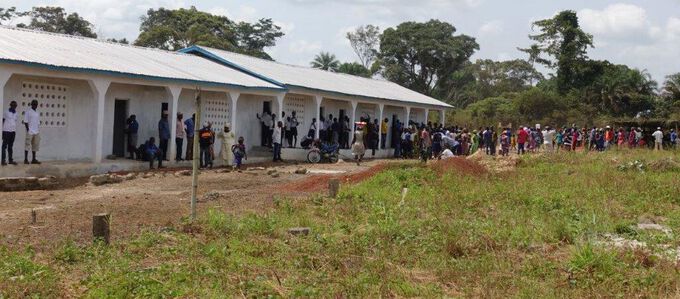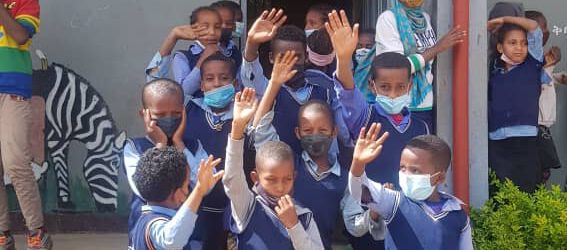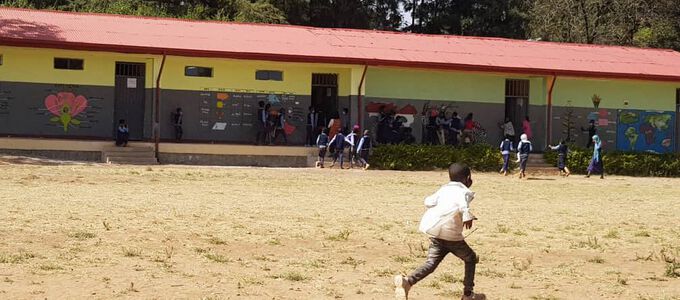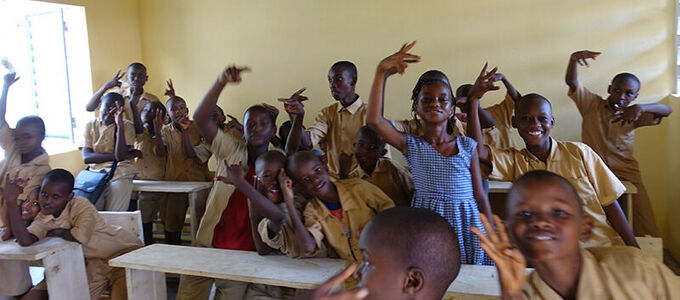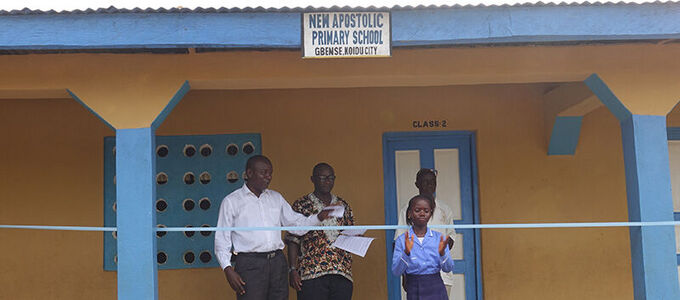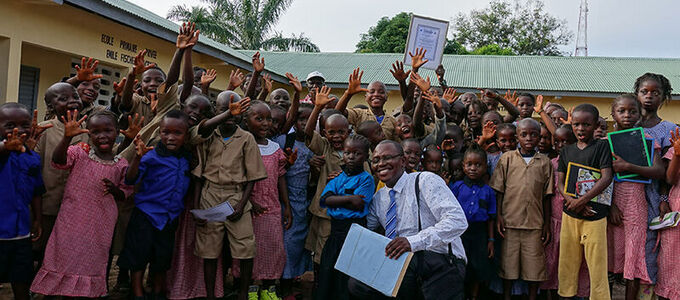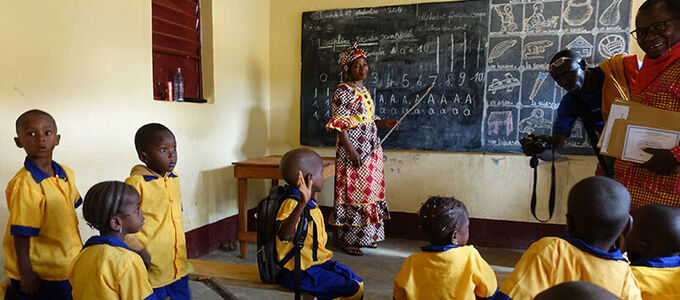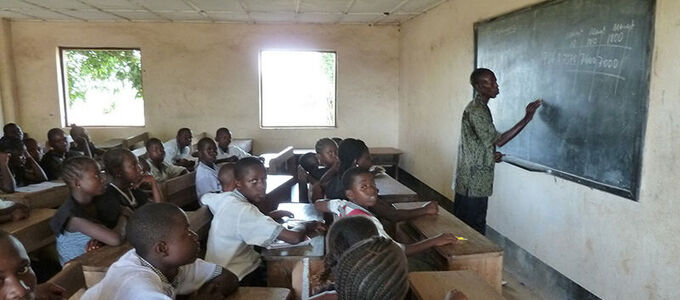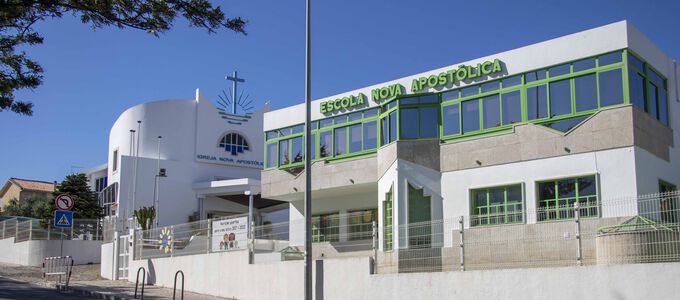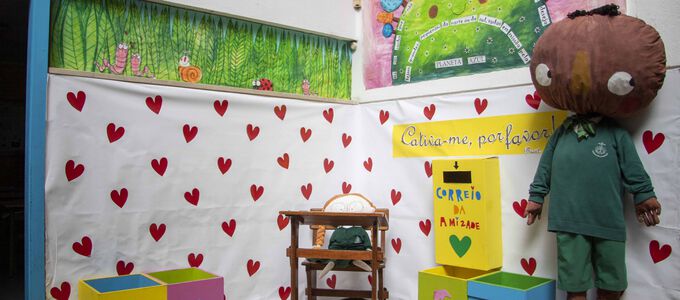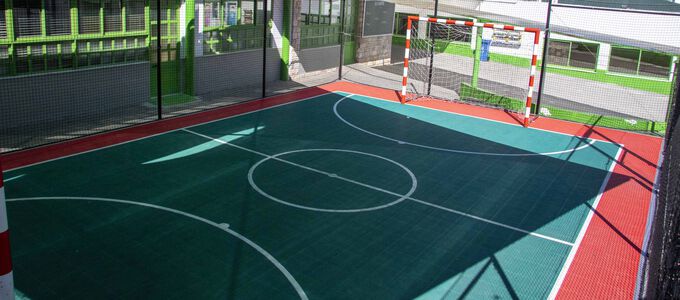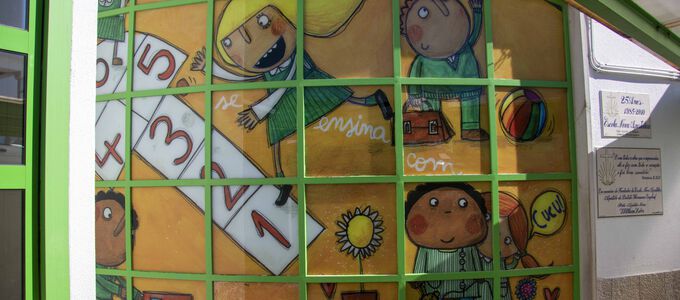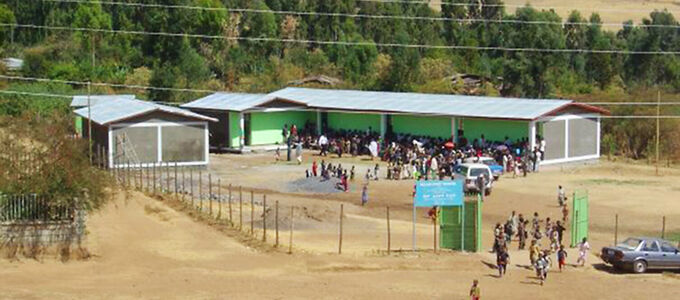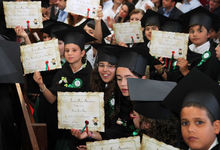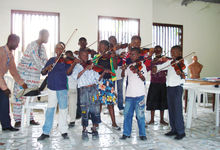Not just Sunday School
Learning in Sunday School or Religious Instruction—children are quite familiar with that from Church. But it is something quite special when the Church also makes it possible for students to learn math and do sports through the week. The story of how education can break the spiral of poverty—here are some examples to mark World Literacy Day on September 8th.
In Guinea, the average length of school attendance is just 1.6 years, making it one of the lowest in the world. Although school attendance in Liberia is legally limited to nine years, there are only a few schools, especially in the rural areas, which means that—according to information from aid organisations—only 40 percent of school-age children can actually attend classes. The same applies to Sierra Leone. Since there are likewise far too few schools and teachers there, many children find it almost impossible to attend compulsory schooling.
This is something that "human aktiv" , the aid organisation of the New Apostolic Church of Southern Germany is seeking to change. It is for this reason that it is undertaking the construction of schools in collaboration with the Jörg-Wolff Institute. Even where schools already exist, the aid organisation finances the construction of permanent school buildings with sanitary facilities, which replace what are often makeshift huts made of corrugated iron. After that, it is up to the state to take care of the maintenance and financing of the schools, but at least the foundation stone has been laid.
The school in Sebeta, Ethiopia was not only built by the aid organisation back in 2005, but has also been supported by it ever since. "Human aktiv" finances the day-to-day operations of the school, which means that the organisation pays for teachers’ salaries and the necessary teaching materials, for example. Around 500 students ranging from grades 1 to 6 will benefit from this. They are taught there in the Oromo language or in the local Amharic language.
Educational success despite crises
It was on 29 September 1985 that Hermann Engelauf, then District Apostle of North Rhine-Westphalia, founded the “Escola Nova Apostólica” (the New Apostolic School) in Portugal. “The children are our future, and we must take special care of them,” said the District Apostle, to whom a memorial plaque at the school in Lisbon is dedicated today.
At that time, the private school began with 40 students and seven employees. Today there are around 280 students and 38 teachers and other staff. Despite the financial crisis in the country and the COVID-19 crisis that ravaged the world, the teachers and supervisors are very proud of their students, who all managed to graduate from primary school.
The COVID-19 pandemic forced people to switch to home schooling, which overwhelmed some children and especially their parents, as Apostle Dimitrios Diniz relates. Although the children have indeed been able to develop their computer skills and a certain degree independence, there were many social skills that were impossible to further develop.
For quite a few of the students, it was difficult to pay the school fees. Thanks to support from the state, however, the New Apostolic school was able to allow the parents to pay less, or even waive the school fees altogether. “We do not know what the consequences of COVID-19 will be, but we are sure that time and history will conclude that the COVID-19 pandemic not only had a beginning, but also an end,” says Apostle Diniz.
Building schools in hard to reach places
In Zambia, the Church has been operating two schools for several years, namely the “Matenda” School and the “Makapaela” School in the provincial capitals of Mansa and Mongu, respectively. They are administered by the humanitarian and development policy department of the aid agency known as the New Apostolic Church Relief Organization (NACRO). To ensure long-term funding, NACRO works with the Zambian government. The latter pays teachers and supports the schools financially. NACRO remains the administrator and owner of the schools on behalf of the Church, however.
Over the last few years, NACRO has been able to achieve a great deal in collaboration with the government. The “Matenda” School has more students than ever before, and the Zambian government thus also pays more teachers there. NACRO also works with the Department of Education and the regional Board of Education.
“Makapaela” was founded under a tree in 2012 as a community school. In 2013, the New Apostolic Church took over the school. In recent years it has been expanded again and again, and is still growing rapidly. Because of its location in an area where it can help many children, the school receives a lot of funding from the Zambian government. NACRO’s function here is to provide the necessary infrastructure. Among other things, NACRO was able to finance new classrooms and even a computer room. Since more than 200 students are now being taught at the school, it needs to be expanded even further. NACRO is currently planning to convert it into a boarding school.
About five years ago, the New Apostolic Church in Zambia initiated another school project. The community of Ganda is separated from all educational opportunities by the two rivers Zimba and Matezi. Many people there cannot read or write and therefore have little chance of improving their standard of living. Therefore, NACRO built a school right in the community to provide education for 845 households there. There are currently 283 students enrolled, and they are taught by three teachers. The school infrastructure is to be further expanded in the future.
Article info
Author:
Date:
Keywords:
Katrin Löwen
08.09.2022
Aid agencies,
Auxiliary institutions,
Doctrinal instruction,
Social commitment,
People/Personalities


